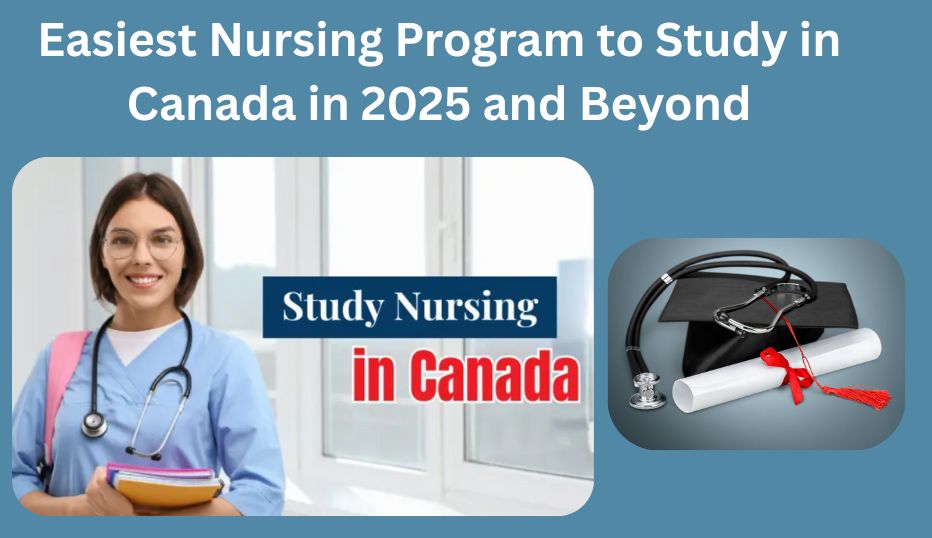Canada’s healthcare system is renowned for its excellence, and nursing stands as a pivotal profession within this framework. For international students aspiring to pursue nursing education in Canada, understanding the landscape of programs, admission requirements, and recent policy changes is crucial. This comprehensive guide aims to provide detailed insights into the most accessible nursing programs in Canada, the prerequisites for admission, and the evolving immigration policies affecting international students.
Understanding Nursing Education in Canada
Nursing education in Canada is structured to equip students with the necessary skills and knowledge to excel in various healthcare settings. The primary pathways include Government of Canada
- Bachelor of Science in Nursing (BScN): Typically a four-year undergraduate program focusing on foundational nursing practices and theories. canapprove.com
- Diploma of Practical Nursing: A shorter program, usually spanning 1 to 2 years, leading to licensure as a Licensed Practical Nurse (LPN).
- Master of Science in Nursing (MSN): A graduate program emphasizing advanced clinical training, research, and leadership. canapprove.com
- Doctor of Philosophy (PhD) in Nursing: A research-intensive program aimed at those interested in academic and policy-making roles.
For international students seeking the most accessible entry points, diploma programs and certain BScN programs may offer more straightforward admission processes and shorter durations. ScholarshipCA
Identifying Accessible Nursing Programs
While the term “easiest” can be subjective, certain programs are known for their more inclusive admission criteria and support for international students:
- Diploma of Practical Nursing: These programs often have less stringent admission requirements compared to degree programs. They provide a quicker route to entering the nursing profession, with many institutions offering pathways to bridge into BScN programs later. University of Alberta
- Collaborative BScN Programs: Offered jointly by colleges and universities, these programs may have more flexible admission standards and provide comprehensive support services for international students.
It’s essential to research individual institutions, as admission criteria can vary. Factors such as GPA requirements, prerequisite courses, and language proficiency scores differ among programs.
Admission Requirements for International Students
To gain admission into nursing programs in Canada, international students must meet specific academic and language proficiency standards:
- Academic Credentials: A high school diploma with courses in English, mathematics, biology, and chemistry is typically required for undergraduate programs. Graduate programs necessitate a bachelor’s degree in nursing or a related field. canapprove.com+1Study in Canada + 1 Study in Canada + 1 canapprove.com+1
- Language Proficiency: Proof of English or French proficiency is mandatory. Most institutions accept IELTS or TOEFL scores, with minimum requirements varying by program. For instance, the University of Saskatchewan requires an IELTS score of 7.0 or a TOEFL score of at least 90 . Study in Canada LinkedIn
- Additional Requirements: Some programs may require the CASPer test, a situational judgment test assessing non-academic attributes. Letters of recommendation, a statement of purpose, and relevant work or volunteer experience can also strengthen an application. SPS Canada
Navigating Immigration Policies
Recent changes in Canada’s immigration policies have implications for international students: Reuters + 1Reuters + 1
- Study Permit Caps: The Canadian government has reduced the number of study permits issued to international students, aiming to alleviate pressure on housing and public services. In 2025, the cap is set at 437,000 permits, a 10% reduction from the previous year . Reuters+1Reuters+1
- Provincial Attestation Letters: Applicants must now obtain a letter from the province or territory confirming their inclusion within the federal cap. This requirement ensures that institutions manage international student numbers effectively. Reuters
- Work Permit Eligibility: Restrictions have been placed on work permits for spouses of international students and certain temporary foreign workers, potentially affecting family members accompanying students .Reuters
Prospective students should stay informed about these policies and consult with immigration advisors or the official Immigration, Refugees and Citizenship Canada (IRCC) website for the latest information.
Financial Considerations
Tuition fees for nursing programs in Canada vary based on the institution and program level:
- Diploma Programs: Approximately CAD 9,500 to CAD 25,000 per year. canapprove.com
- Bachelor’s Programs: Approximately CAD 47,000 to CAD 75,000 per year.
- Master’s Programs: Approximately CAD 50,000 to CAD 100,000 per year.
- PhD Programs: Approximately CAD 9,000 to CAD 18,000 per year. canapprove.com
These estimates exclude additional costs such as accommodation, textbooks, and living expenses. Many institutions offer scholarships and financial aid options for international students, which can alleviate the financial burden.
Pathways to Permanent Residency
Canada provides avenues for international nursing graduates to transition to permanent residency:
- Post-Graduation Work Permit (PGWP): Allows graduates to work in Canada for up to three years, depending on the length of their study program.
- Canadian Experience Class (CEC): Part of the Express Entry system, this program facilitates permanent residency for individuals with Canadian work experience.
- Provincial Nominee Programs (PNPs): Many provinces have specific streams targeting healthcare professionals, including nurses, to address regional labor shortages.
Gaining Canadian work experience post-graduation significantly enhances the prospects of obtaining permanent residency.
Conclusion
Embarking on a nursing education journey in Canada as an international student in 2025 requires careful planning and awareness of the evolving educational and immigration landscape.





